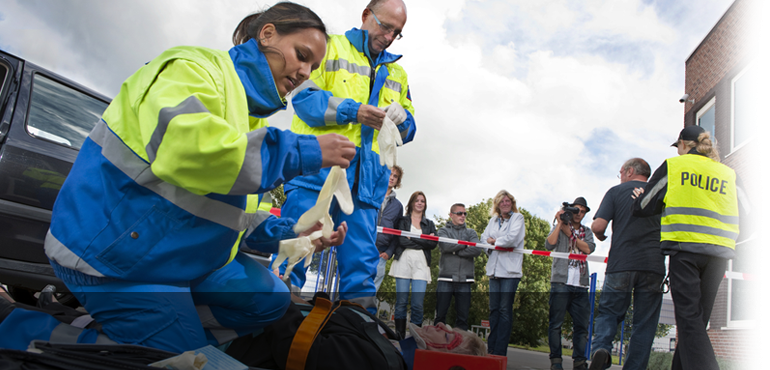| Toll Free : 1844 495 7333(injury hotline- new cases only) | |
| Text a Personal Injury Lawyer 24/7 and get instant help.TM (416 931 5015) | |
| Head Office : 905 495 7333 |
Difference Between Collaborative Divorce, Mediation, Arbitration and Negotiation
July 23, 2020Collaborative family law, also called collaborative practice, is an alternative process through which you and your partner can resolve your legal issues outside of court by working together and taking the help of the collaborative family lawyers. In this procedure, sometimes you may also need to work with a social worker or financial socialist.
Your collaborative family lawyer works with both of you to bring you both to an agreement on your issues. In this case, you and your partner get a safe space to alleviate conflict. You and your partner go through several meetings with your collaborative professionals before you agree on similar terms or issues.
The collaborative process has to be voluntary. This means that you and your partner have to agree on a collaborative procedure. One cannot force the other person to be part of it or be forced to agree on others’ issues.
In a mediation divorce, a third party involved with neutral views is the mediator. He assists you through various negotiations and facilitates a settlement on all the issues. A mediator cannot give you any legal advice and cannot advocate for either side. Only your lawyers can advocate your cases, and it depends wholly on the lawyer if they want to present at the mediation sessions or not. In the absence of a lawyer, the mediator and both parties can consult each other. If you and your partner agree, the mediator prepares a draft, which is later reviewed by the lawyers for approval.
Mediation is often preferred by couples who have low conflicts, and after negotiation, they can agree in the presence of a mediator, while the collaborative procedure is appropriate for low to high conflicts where there are obvious trust issues. In the collaborative divorce process, you have lawyers who can advocate resolution, and they can also assist you in understanding your rights. They also ensure that the procedure is fair and balanced. After reaching an agreement, the lawyers draft the agreement, which is reviewed by both the parties for approval.
Mediation and collaborative divorce procedures are voluntary. It depends on the complete financial disclosure by both parties and the commitment to coming to an agreement, which will be beneficial for both parties.
Now, arbitration and mediation both have similar goals, although significant differences exist. The couple should consider the differences before moving on with the procedure.
The primary difference between these two is that evidence is considered before agreeing in the case of arbitration. The arbitration process is very similar to the court process. Both parties have to present evidence and provide testimonies, but it isn’t as formal as a court procedure. While in mediation, there is the process of negotiation involving an unbiased third party until both parties agree on a resolution.
Arbitration is more formal in nature than a mediation process. During the arbitration, both the individuals get their chances to explain their case in front of the arbitrator. Just like in a court, even in arbitration, lawyers can question the witnesses. During the arbitration process, there is usually very little to no negotiation outside the court between both the parties. An arbitrator holds the faculty to contribute any legal decision which they think is appropriate and necessary. This should be agreed upon and honored by both sides.
Often, the terms mediation and negotiation are used in the same context, which is not accurate on various levels. Negotiation and mediation are different ideas and approaches to resolve a dispute. By knowing about the differences, you could decide which way is better to resolve your dispute.
In a negotiation process, both the parties agree to work with one another to reach a resolution, which means that both individuals depend on each other to achieve a result. But when the couple believes that talking to each other may not be the best idea, they should choose mediation.
A mediator is the third person who can guide you through the process. In situations where there are trust issues, and communication is impaired, a mediator becomes important to guide the conversation in a positive manner. Instead of arguing, a mediator searches for the common ground and talks it out to get workable solutions to reach a resolution.
With a negotiation process, both parties have to meet each other since there is no third person involved in the process, which is why negotiation and mediation cannot be used in the same context. While in mediation, both parties can meet each other separately, or in the presence of the mediator, and the mediator can even talk to them individually. In mediation, there is a lot more flexibility than in negotiation.
Through negotiation, both parties can settle on an agreement and find a resolution. While on the other hand, a mediator does not hold any decision-making power or cannot hand down a ruling like a judge or an arbitrator. You and your partner must agree voluntarily to mediation. Both individuals get the power to make the decision that works for everyone.
In negotiation, the parties may persuade each other and force the other side to agree and sign a document. When one of them is tired, they may even end up signing the document to get it over with. In such cases, a mediator can be helpful to give an honest and unbiased decision. A mediator can show the person the reality over feeling like they are entitled to everything with unreasonable terms.
To get your disputes settled and get honest opinions and decisions, contact our Brampton divorce lawyer to move in the right direction. Contact us to resolve the confusion and choose the right way to handle your divorce with no complications. Let us help you to solve your disputes and have a justified separation. Our Brampton separation lawyer will guide you through the process. You are not alone in this fight and journey. Our divorce lawyer in Brampton will help you to navigate this path.
Difference Between Collaborative Divorce, Mediation, Arbitration and Negotiation
July 23, 2020Collaborative family law, also called collaborative practice, is an alternative process through which you and your partner can resolve your legal issues outside of court by working together and taking the help of the collaborative family lawyers. In this procedure, sometimes you may also need to work with a social worker or financial socialist.
Your collaborative family lawyer works with both of you to bring you both to an agreement on your issues. In this case, you and your partner get a safe space to alleviate conflict. You and your partner go through several meetings with your collaborative professionals before you agree on similar terms or issues.
The collaborative process has to be voluntary. This means that you and your partner have to agree on a collaborative procedure. One cannot force the other person to be part of it or be forced to agree on others’ issues.
In a mediation divorce, a third party involved with neutral views is the mediator. He assists you through various negotiations and facilitates a settlement on all the issues. A mediator cannot give you any legal advice and cannot advocate for either side. Only your lawyers can advocate your cases, and it depends wholly on the lawyer if they want to present at the mediation sessions or not. In the absence of a lawyer, the mediator and both parties can consult each other. If you and your partner agree, the mediator prepares a draft, which is later reviewed by the lawyers for approval.
Mediation is often preferred by couples who have low conflicts, and after negotiation, they can agree in the presence of a mediator, while the collaborative procedure is appropriate for low to high conflicts where there are obvious trust issues. In the collaborative divorce process, you have lawyers who can advocate resolution, and they can also assist you in understanding your rights. They also ensure that the procedure is fair and balanced. After reaching an agreement, the lawyers draft the agreement, which is reviewed by both the parties for approval.
Mediation and collaborative divorce procedures are voluntary. It depends on the complete financial disclosure by both parties and the commitment to coming to an agreement, which will be beneficial for both parties.
Now, arbitration and mediation both have similar goals, although significant differences exist. The couple should consider the differences before moving on with the procedure.
The primary difference between these two is that evidence is considered before agreeing in the case of arbitration. The arbitration process is very similar to the court process. Both parties have to present evidence and provide testimonies, but it isn’t as formal as a court procedure. While in mediation, there is the process of negotiation involving an unbiased third party until both parties agree on a resolution.
Arbitration is more formal in nature than a mediation process. During the arbitration, both the individuals get their chances to explain their case in front of the arbitrator. Just like in a court, even in arbitration, lawyers can question the witnesses. During the arbitration process, there is usually very little to no negotiation outside the court between both the parties. An arbitrator holds the faculty to contribute any legal decision which they think is appropriate and necessary. This should be agreed upon and honored by both sides.
Often, the terms mediation and negotiation are used in the same context, which is not accurate on various levels. Negotiation and mediation are different ideas and approaches to resolve a dispute. By knowing about the differences, you could decide which way is better to resolve your dispute.
In a negotiation process, both the parties agree to work with one another to reach a resolution, which means that both individuals depend on each other to achieve a result. But when the couple believes that talking to each other may not be the best idea, they should choose mediation.
A mediator is the third person who can guide you through the process. In situations where there are trust issues, and communication is impaired, a mediator becomes important to guide the conversation in a positive manner. Instead of arguing, a mediator searches for the common ground and talks it out to get workable solutions to reach a resolution.
With a negotiation process, both parties have to meet each other since there is no third person involved in the process, which is why negotiation and mediation cannot be used in the same context. While in mediation, both parties can meet each other separately, or in the presence of the mediator, and the mediator can even talk to them individually. In mediation, there is a lot more flexibility than in negotiation.
Through negotiation, both parties can settle on an agreement and find a resolution. While on the other hand, a mediator does not hold any decision-making power or cannot hand down a ruling like a judge or an arbitrator. You and your partner must agree voluntarily to mediation. Both individuals get the power to make the decision that works for everyone.
In negotiation, the parties may persuade each other and force the other side to agree and sign a document. When one of them is tired, they may even end up signing the document to get it over with. In such cases, a mediator can be helpful to give an honest and unbiased decision. A mediator can show the person the reality over feeling like they are entitled to everything with unreasonable terms.
To get your disputes settled and get honest opinions and decisions, contact our Brampton divorce lawyer to move in the right direction. Contact us to resolve the confusion and choose the right way to handle your divorce with no complications. Let us help you to solve your disputes and have a justified separation. Our Brampton separation lawyer will guide you through the process. You are not alone in this fight and journey. Our divorce lawyer in Brampton will help you to navigate this path.








